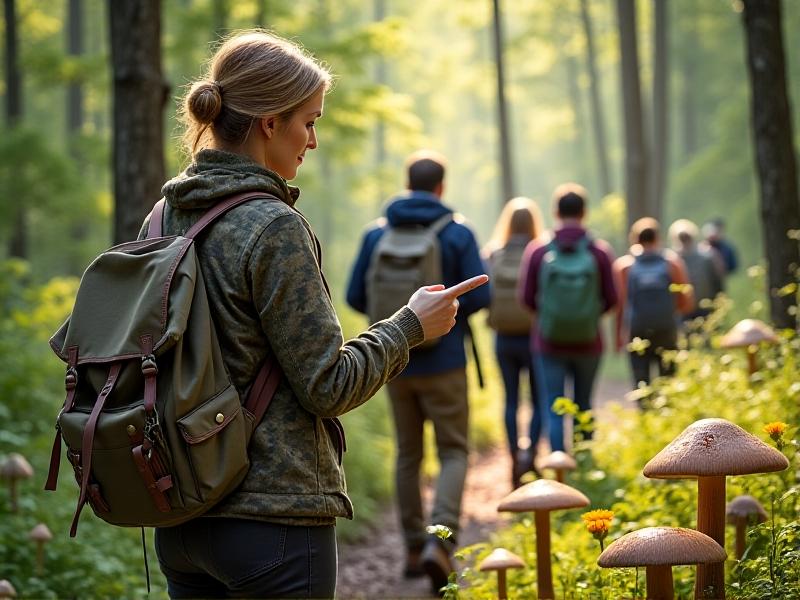Legal Precedents in Mushroom-Related Poisoning Cases and Insurance Claims
Introduction to Mushroom-Related Poisoning and Legal Implications
Mushroom foraging has grown in popularity as a recreational activity, but it comes with significant risks. Misidentification of wild mushrooms can lead to severe poisoning, hospitalization, and even death. Beyond the immediate health concerns, mushroom-related poisoning cases often trigger complex legal and insurance issues. This article explores the legal precedents in such cases, focusing on liability, negligence, and the role of insurance in covering medical expenses and other damages.

Historical Cases of Mushroom Poisoning and Legal Outcomes
Historically, mushroom poisoning cases have set important legal precedents. One notable case involved a family who consumed toxic mushrooms purchased from a local market. The court ruled in favor of the plaintiffs, holding the seller liable for failing to ensure the mushrooms were safe for consumption. Another case involved a foraging guide who was sued for negligence after a client suffered severe poisoning. These cases highlight the importance of due diligence and accountability in mushroom-related activities.

Negligence and Liability in Mushroom Foraging
Negligence is a key factor in mushroom poisoning cases. Foragers, sellers, and guides have a duty of care to ensure the safety of their products or services. For example, a foraging guide who fails to properly identify edible mushrooms may be held liable for any resulting harm. Similarly, restaurants and markets that sell wild mushrooms must verify their safety. Legal precedents emphasize the need for proper training, certification, and documentation to mitigate liability risks.

Insurance Claims in Mushroom Poisoning Incidents
Insurance plays a critical role in covering the costs associated with mushroom poisoning. Health insurance policies typically cover medical expenses, but claims can be denied if the poisoning is deemed the result of reckless behavior. Liability insurance is essential for businesses involved in selling or guiding mushroom-related activities. Legal precedents have clarified the scope of coverage, emphasizing the need for comprehensive policies that address potential risks.
Legal Defenses in Mushroom Poisoning Lawsuits
Defendants in mushroom poisoning lawsuits often rely on legal defenses such as assumption of risk or contributory negligence. For example, if a forager knowingly consumed wild mushrooms without proper identification, they may be deemed partially responsible for their own harm. Courts have also considered the role of disclaimers and waivers in mitigating liability. These defenses highlight the importance of informed consent and personal responsibility in mushroom-related activities.
Public Awareness and Prevention Strategies
Preventing mushroom poisoning requires public awareness and education. Legal precedents have encouraged governments and organizations to implement safety campaigns, distribute identification guides, and offer training programs. For example, some regions have established certification programs for foraging guides to ensure they possess the necessary knowledge and skills. These efforts aim to reduce the incidence of poisoning and the associated legal and financial burdens.
The Role of Expert Witnesses in Mushroom Poisoning Cases
Expert witnesses play a crucial role in mushroom poisoning litigation. Mycologists, toxicologists, and medical professionals provide testimony on the identification of mushrooms, the nature of the toxins involved, and the health impacts on the victims. Their expertise helps courts determine liability and assess damages. Legal precedents have established the qualifications and standards for expert witnesses, ensuring their testimony is reliable and credible.
International Perspectives on Mushroom Poisoning Laws
Mushroom poisoning laws vary across countries, reflecting differences in legal systems and cultural attitudes toward foraging. In some countries, foraging is heavily regulated, while in others, it is a common practice with minimal oversight. International legal precedents provide valuable insights into best practices for liability, insurance, and public safety. These comparisons underscore the need for global cooperation in addressing the risks associated with mushroom consumption.
Future Trends in Mushroom Poisoning Litigation
As mushroom foraging continues to grow in popularity, legal systems must adapt to address emerging challenges. Future trends may include stricter regulations, mandatory insurance requirements, and advancements in mushroom identification technology. Legal precedents will play a critical role in shaping these developments, ensuring that the rights and responsibilities of all parties are clearly defined. By learning from past cases, stakeholders can work together to create a safer and more equitable legal framework.







